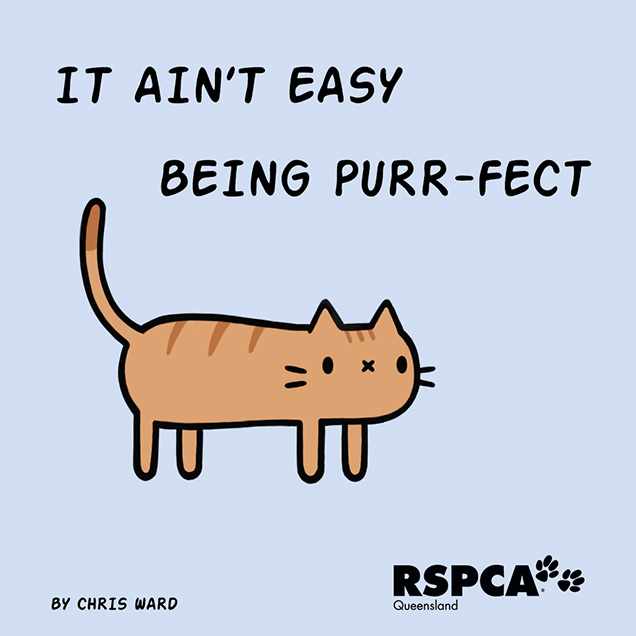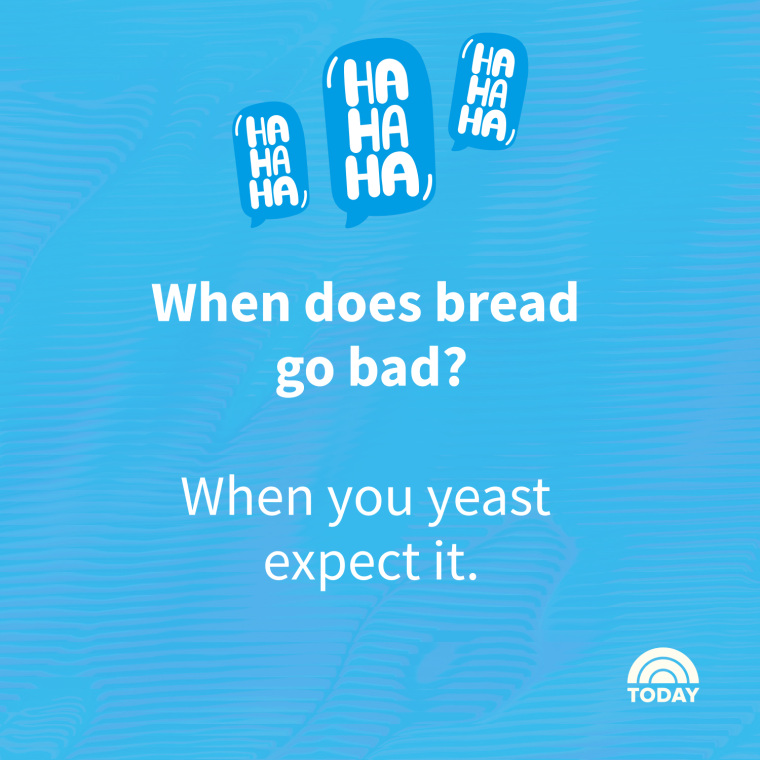Puns are clever, witty, and bring a smile. They play with words in fun ways.
But what happens when puns make fun of themselves? Welcome to the world of puns about puns. This delightful twist on wordplay is a pun-lover’s paradise. It’s a realm where humor meets cleverness, and every word has a double meaning.
Wordplay enthusiasts adore these meta-jokes because they add an extra layer of amusement. Puns about puns are not just jokes; they’re a celebration of language and creativity. They tickle the brain and entertain, making us think while we laugh. Ready to dive into this playful world? Let’s explore the funniest, most ingenious puns that take puns to the next level!

Credit: www.rspcaqld.org.au
Introduction To Puns
Puns are jokes that play on words. They use a word with multiple meanings or words that sound alike. Puns make people laugh by using clever wordplay. They can be found in many forms of humor. Many people use puns in daily conversations. Even books and movies use puns. They are a fun way to play with language.
Puns have been around for a long time. Ancient Egyptians used puns in their writing. Shakespeare loved using puns in his plays. Puns are common in many cultures. They can be found in old texts and modern memes. The history of puns shows how people enjoy wordplay. Puns connect people through humor.
Types Of Puns
Homophonic puns play with words that sound the same. These words have different meanings. For example, “I have a sole in my shoe” and “I have a soul in my body.” Both “sole” and “soul” sound alike. But they mean different things. This type of pun is fun and tricky.
Homographic puns use words that look the same. They have different meanings and pronunciations. For example, “Lead the way” and “The pipe is made of lead.” Both “lead” words are spelled the same. But they are pronounced differently and mean different things. These puns surprise and amuse us.
Why We Love Puns
Puns can make us think harder. Our brains enjoy solving puzzles. Wordplay makes us smarter. It helps us see words in new ways. Kids and adults both benefit. Mental exercise is fun with puns. They also improve our memory. We remember jokes better than plain facts.
Puns bring smiles and laughter. Humor is good for our health. Laughing reduces stress. Happy moments improve our mood. Sharing puns connects people. Friends and family enjoy them together. Positive emotions are contagious. Fun wordplay brightens any day.

Credit: www.today.com
Puns In Literature
Literature often enjoys puns about puns, adding layers of humor. These clever wordplays delight readers with witty twists.
Shakespeare’s Wordplay
Shakespeare loved puns. He used them in his plays. Words had double meanings. This made his writing funny. Many characters used puns. For example, in “Romeo and Juliet,” Mercutio says, “Ask for me tomorrow, and you shall find me a grave man.” Here, “grave” means serious and a burial place. Such puns made his work rich and clever.
Modern Literary Puns
Modern authors use puns too. They add humor to stories. Puns make readers smile. J.K. Rowling used puns in “Harry Potter.” For instance, Diagon Alley sounds like “diagonally.” This play on words is fun. It keeps the story lively. Puns are timeless. They connect old and new literature.
Puns In Pop Culture
Movies and TV shows love puns. They make us laugh. Characters often use puns to be funny. Animated movies are full of them. Think of Shrek and his jokes. TV comedies also use puns. Shows like Friends and The Simpsons have many. Puns make dialogues fun and clever. They keep viewers entertained.
Songs often use puns in lyrics. They make songs catchy. Pop songs are the best at this. Singers use puns to play with words. This makes the lyrics memorable. Even kids’ songs have puns. They make songs fun to sing along. Puns in music bring joy and laughter. They add a clever twist to the lyrics.
Puns In Advertising
Many brands use puns in their taglines. They create a clever play on words. This makes the tagline memorable. For example, a bakery might say, “We make dough rise.” This is a pun on the word “dough” meaning money and bread.
Another example is a camera store that says, “We focus on you.” This pun uses the word “focus” to mean paying attention and the function of a camera. Puns make taglines fun and engaging.
Puns are often used in commercials. They grab attention quickly. A car ad might say, “Our deals are a steal.” This is a pun on the word “steal” meaning both theft and a great bargain.
A laundry detergent commercial could say, “We clean up well.” This uses the word “clean” to mean both tidy and doing a good job. Puns make commercials entertaining and easy to remember.
Creating Your Own Puns
Find words with double meanings. These words are the best for puns. Homophones work well, too. Words that sound alike but have different meanings. Play with phrases. Change one word to make it funny. Keep it simple and clear.
Avoid overthinking. Simple puns are often the best. Do not use complicated words. They can confuse people. Timing is key. Deliver your pun at the right moment. Do not force it. Practice makes perfect. The more you practice, the better you get.

Credit: wordfinder.yourdictionary.com
Puns In Different Languages
Bilingual puns mix words from two languages. This creates fun, dual meanings. For example, a joke in English and Spanish can be “Nacho cheese” meaning “Not your cheese”. These puns can help learn new words. They make language learning fun. Children love bilingual puns. They laugh and learn at the same time.
Puns change with culture. What’s funny in one place may not be funny in another. For instance, Japanese puns often use similar sounds. They play with words that sound alike. In French, puns often involve wordplay with endings. Each culture has its own style. This makes puns unique and interesting. It’s fun to explore puns from around the world.
The Science Behind Puns
Puns make your brain work hard. The brain needs to understand two meanings at once. This uses the left and right sides of the brain. The left side handles words and grammar. The right side deals with humor and creativity. Both sides must work together. This makes puns a mental workout.
Puns play with language. They use words with double meanings. Some puns sound the same but mean different things. Other puns use words that look similar. This makes puns funny and clever. Puns challenge our understanding of language. They show how flexible language can be.
Famous Punsters
Some comedians are known for their clever puns. Groucho Marx loved wordplay. His jokes often had double meanings. Oscar Wilde was another master of puns. His witty lines are still quoted today. Stephen Fry also enjoys puns. He uses them in his books and shows.
William Shakespeare used many puns in his plays. His works are filled with clever wordplay. Mark Twain also enjoyed puns. His stories often have humorous language. Lewis Carroll wrote books with many puns. His characters often speak in riddles and jokes.
Frequently Asked Questions
What Are Puns?
Puns are jokes that play with words’ meanings or sounds. They’re clever and funny.
Why Do People Love Puns?
Puns make people laugh. They are clever and often surprising. Good for breaking the ice.
Can You Give An Example Of A Pun?
Sure! “Time flies like an arrow. Fruit flies like a banana. “
Are Puns Considered Good Humor?
Yes, puns are light-hearted and witty. They often make people smile or laugh.
How Can I Create My Own Puns?
Think of words with double meanings. Play with sounds. Be creative and have fun.
Do Puns Work In All Languages?
Not always. Puns rely on wordplay, which doesn’t always translate well. Some languages have more puns.
Are Puns Used In Literature?
Yes, many writers use puns. Shakespeare loved them. They add humor and depth to writing.
What Are Some Famous Puns?
“To write with a broken pencil is pointless. ” Simple yet clever.
Why Are Puns Popular On Social Media?
Puns are short and witty. Perfect for quick laughs and shares online.
Can Puns Improve Language Skills?
Yes, they help with understanding word meanings and sounds. Fun way to learn language nuances.
Conclusion
Puns about puns bring smiles and laughter. They offer endless fun. Simple, yet clever. Playing with words can lighten up any day. Sharing puns connects us. Everyone loves a good laugh. Keep the humor going. Enjoy the witty wordplay. Spread the joy of puns.
Laughter is the best medicine. Keep smiling and punning.


Comments